Congress pushes ahead on Donald Trump impeachment with nation split

The House is plunging into a landmark impeachment week, with Democrats who once hoped to sway Republicans now facing the prospect of an ever-hardening partisan split over the question of removing President Donald Trump from office. Lawmakers were getting their first look at the House Intelligence Committee’s impeachment report Monday night behind closed doors. The findings are expected to forcefully make the Democrats’ case that Trump engaged in what Chairman Adam Schiff calls impeachable “wrongdoing and misconduct” in pressuring Ukraine to investigate Democrats and Joe Biden while withholding military aid to the ally. For Republicans offering an early rebuttal ahead of the report’s public release, the proceedings are simply a “hoax,” with Donald Trump insisting he did nothing wrong and his GOP allies in line behind him. Trump tweeted his daily complaints about it all and then added a suggestive, if impractical, question: “Can we go to Supreme Court to stop?” With the Judiciary Committee set to launch its first hearing Wednesday, the impeachment proceedings are presenting a historic test of political judgment in a case that is dividing Congress and the country. Departing for a NATO meeting in London, Trump criticized the House for pushing forward Monday with proceedings while he was heading overseas, a breach of political decorum that traditionally leaves partisan differences at the water’s edge. He predicted Republicans would actually benefit from the entire impeachment effort against him, though “it’s a disgrace for our country.” For the Democrats, House Speaker Nancy Pelosi faces a critical moment of her leadership as she steers the process ahead after resisting the impeachment inquiry through the summer, warning it was too divisive for the country and required bipartisan support. Speaking to reporters at the international climate conference in Madrid, Pelosi declined to engage with impeachment questions. “When we travel abroad, we don’t talk about the president in a negative way,” she said. “We save that for home.” Possible grounds for impeachment are focused on whether Trump abused his office as he pressed Ukrainian President Volodymyr Zelenskiy in a July 25 phone call to launch investigations into Trump’s political rivals. At the time, Trump was withholding $400 million in military aid, jeopardizing key support as Ukraine faced an aggressive Russia at its border. The report, which the Intelligence panel will vote on Tuesday and make public, also is expected to include evidence the Democrats say suggests obstruction of Congress, based on Trump’s instructions for his administration to defy subpoenas for documents and testimony. The next step comes when the Judiciary Committee gavels open its own hearing with legal experts to assess the findings and consider potential articles of impeachment ahead of a possible vote by the full House by Christmas. That would presumably send it to the Senate for a trial in January. The Democratic majority on the Intelligence Committee says its report, compiled after weeks of testimony from current and former diplomats and administration officials, will speak for itself in laying out the president’s actions toward Ukraine. Republicans pre-empted the report’s public release with their own 123-page rebuttal. In it, they claim there’s no evidence Trump pressured Zelenskiy. Instead, they say Democrats just want to undo the 2016 election. Republicans dismiss witness testimony of a shadow diplomacy being run by Trump lawyer Rudy Giuliani, and they rely on the president’s insistence that he was merely concerned about “corruption” in Ukraine — though the White House transcript of Trump’s phone call with Zelenskiy never mentions the word. “They are trying to impeach President Trump because some unelected bureaucrats chafed at an elected President’s ‘outside the beltway’ approach to diplomacy,” according to the report from Republican Reps. Devin Nunes of California, Jim Jordan of Ohio and Michael McCaul of Texas. Rep. Jim Jordan, Republican-Ohio, appeared to be the only lawmaker who viewed the Democratic report Monday evening when it became available behind closed doors for members of the intelligence panel. He said it was “long.” Jordan declined to discuss details, but said it’s the same “lame case” Democrats presented throughout impeachment hearings. “The president did nothing wrong,” Jordan said. “The facts are on our side.” Trump on Monday pointed to Zelenskiy’s recent comments as proof he did nothing wrong. The Ukrainian president said in an interview he never talked to Trump “from the position of a quid pro quo,” but he didn’t say Trump did nothing wrong. In fact, he had strong criticism for Trump’s actions in the Time magazine interview. With Ukraine at war with Russia, he said, its partners “can’t go blocking anything for us.” Schiff said the GOP response was intended for an audience of one, Trump, whose actions are “outside the law and constitution.” The finished Intelligence Committee report sets up the week’s cascading actions. Democrats could begin drafting articles of impeachment against the president in a matter of days, with voting in the Judiciary Committee next week. Republicans on the committee, led by Rep. Doug Collins of Georgia, plan to use procedural moves to stall the process and portray the inquiry as unfair to the president. The White House declined an invitation to participate, with Counsel Pat Cipollone denouncing the proceedings as a “baseless and highly partisan inquiry” in a letter to Judiciary Chairman Jerrold Nadler, Democart-New York. Trump had previously suggested that he might be willing to offer written testimony under certain conditions, though aides suggested they did not anticipate Democrats would ever agree to them. Cipollone’s letter of nonparticipation applied only to the Wednesday hearing, and he demanded more information from Democrats on how they intended to conduct further hearings before Trump would decide whether to participate. Nadler said Monday if the president really thought his call with Ukraine was “perfect,” as he repeatedly says, he would “provide exculpatory information that refutes the overwhelming evidence of his abuse of power.” House rules provide the president and his attorneys the right to cross-examine witnesses and review evidence before the committee, but little ability to bring forward witnesses of their own. Asked why not have his lawyers participate, Trump said
Former Alabama congressman Jack Edwards dies at 91
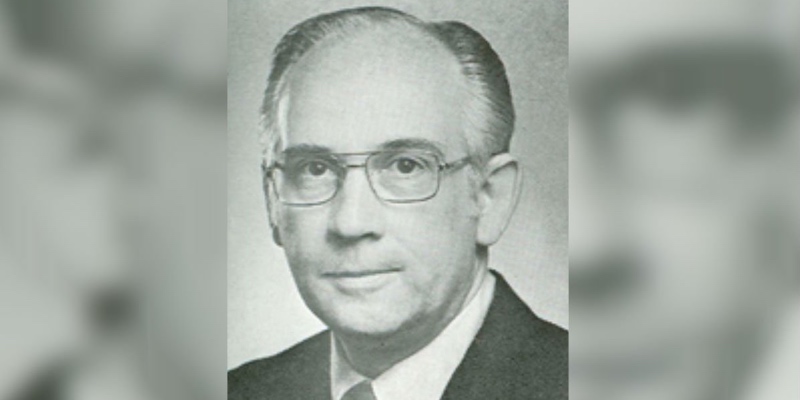
Former U.S. Rep. Jack Edwards of Alabama, who served 10 terms in Congress and was in the first wave of Deep South Republicans, died Friday. He was 91. His family said through a spokesman that Edwards died at his home in Fairhope after a battle with pancreatic cancer. Edwards served in the U.S. House of Representatives from 1965 to 1985. He was one of five Republican congressmen from Alabama elected in 1964 as GOP presidential nominee Barry Goldwater carried several southern states. The 1964 race was a harbinger of things to come as the onetime Solid South grew to become dominated by Republicans. Edwards served under five presidents from Lyndon Johnson to Ronald Reagan during his time in Congress. He was vice-chairman of the Republican leadership. He became the ranking Republican on the defense subcommittee of the Appropriations Committee. He was known as a strong supporter of Reagan’s military buildup, the governor’s office said. He also oversaw funding for the rebuilding of Alabama’s Dauphin Island bridge after a devastating 1979 hurricane. Alabama Gov. Kay Ivey said Edwards served his state and nation with the highest degree of integrity and he was respected on both sides of the political aisle. “He was the epitome of a true public servant and was the ultimate statesman for Alabama. Our state has lost one of our finest,” Ivey said in a statement. In a statement released by his family, they said Edwards described his hopes for a return to civility when recently asked what kind of world he would like to leave his great-grandchildren. “My hope is that my great grandchildren will grow up in a country where civility will have been returned to common discourse and to the efforts to solve the country’s problems,” Edwards said according to the family statement. The governor said flags at the Alabama Capitol will be placed at half-staff in his honor. Republished with the permission of the Associated Press.
Bradley Byrne: August recess roundup
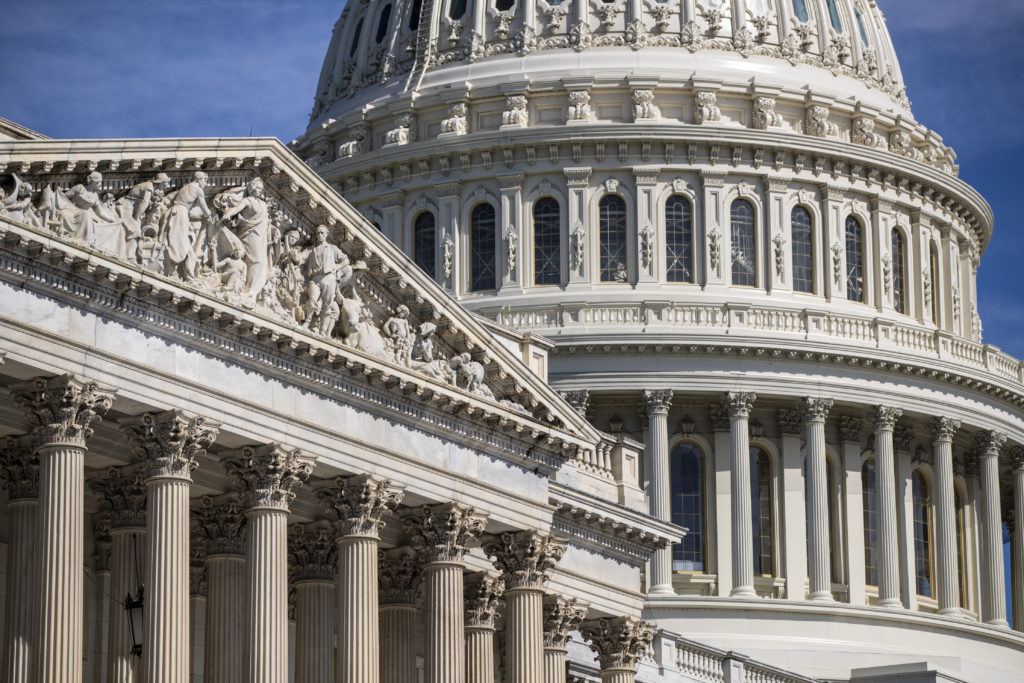
It is a very old tradition for Congress to recess during the hot and humid month of August. Years ago, Congress had completed its work by this time and took the rest of the year off. However, we now reconvene after what has become known as the August District Work Period. This time has always been valuable for me to spend listening to my constituents. This year, with Speaker Nancy Pelosi setting aside six whole weeks for my colleagues and me to spend in our respective districts, I took advantage. I was glad to be able to see so many old and new friends and speak directly with people I represent throughout the district. During the first week of the District Work Period, Alabama got some good news. That week, I received a call from Seema Verna, Administrator of the Centers for Medicare and Medicaid. Administrator Verma informed me that the Trump Administration had finalized a new rule containing reforms to the Medicare Wage Index I have fought for since coming to Congress. These reforms mean millions of dollars that should have been coming to Alabama hospitals will now come our way. In the past, these dollars were going to hospitals in more populated areas like New York and Los Angeles. This important news will especially aid our rural hospitals who have struggled for too long. Our district has a diversity of interests including our Gulf fisheries, manufacturing and industry, diversity small businesses, and agriculture. I held an Economic Development Roundtable in my Mobile office with community leaders from the district to discuss all the issues and challenges they face. I also attended a franchise roundtable at CertaPro Painters in Daphne. Fortunately, the Trump economy is benefitting small businesses and local economies, and tax cuts and reduced regulations have freed business owners to do what they do best. Of course, the water resources in our district are second to none. It was a pleasure to speak at the Tennessee-Tombigbee Waterway Conference about our port and waterways and the need to responsibly manage these valuable resources. In Spanish Fort, I was able to speak to the Society of Military Engineers about all the work they do for our national security. And I was able to make the drive to Ozark to speak with members of the Association of the United States Army. As you probably know, I enjoy hosting town hall meetings so I can hear directly from constituents. Since taking office in 2014, I have held over 100 district town halls. In August, I held lively town halls in Grand Bay and Atmore. Even when I am not in the district, my staff is working for you. They hold monthly community office hours in each of the six counties I represent. Here members of my staff can personally help you with any problems you may be experiencing with federal agencies including the Department of Veterans Affairs, Medicare, and Social Security. We can help you with your passport too. Of course, you can always call or email my office as well if you need our assistance. I am proud that we have helped hundreds of constituents navigate the federal bureaucracy. Little is more satisfying to me or my staff then helping a veteran get the assistance he or she deserves. Speaking with Alabama nurses, farmers, mechanics, veterans, teachers, and retirees over the past six weeks was a great pleasure. Getting the chance over Labor Day to spend time with my grandkids was a wonderful treat too. With Congress reconvening this week, I look forward to continuing my service to you and bringing Alabama values to Washington.
High-capacity magazines get new scrutiny as congress returns

Lawmakers around the country are making a renewed push to ban high-capacity magazines that gunmen have used in many recent massacres, allowing them to inflict mass casualties at a startling rate before police can stop the carnage. Nine states have passed laws restricting magazine capacity to 10 to 15 bullets, and the Democratic-led U.S. House plans to consider a similar ban at the federal level in the coming weeks. In arguing for the bans, politicians, experts and gun-control advocates point out that in the time it takes for a driver to wait through a stop light, a shooter with a 100-round magazine can kill and injure dozens of people. The man who opened fire in Dayton, Ohio, last month killed nine people and injured 27 others in only 30 seconds, in part because of the 100-bullet drum attached to his rifle. It only took 85 seconds for a gunman to empty several 30-round magazines at an IHOP in Carson City, Nevada, killing four people and injuring 14 in 2011. Authorities have not released any information on the accessories the gunman in Odessa, Texas, used over the weekend when he opened fire on police and bystanders with an AR-style weapon. The deadliest example occurred in Las Vegas two years ago when a gunman possessed a dozen 100-round magazines that helped him squeeze off 10 rounds per second onto a crowd of concert-goers from his hotel room, killing 58 people. Las Vegas gunman Stephen Paddock had an arsenal of high-powered rifles along with his large-capacity magazines and bump stocks — now-banned devices that attach to a gun to make it fire bullets more rapidly. The Trump administration banned bump stocks after that massacre, but the high-capacity magazines that smoothly fed hundreds of bullets into Paddock’s rifles remain legal. “We know from video evidence that he was firing about 10 rounds per second,” said Louis Klarevas, a research professor at Teachers College, Columbia University. “The reason he was able to do that was he had a combination of assault rifles with bump stocks and large-capacity magazines. Imagine if he only had 10-round magazines. He would only have shot 10 rounds at a time.” The Keep Americans Safe Act will soon be debated in the House Judiciary Committee. It would prohibit the transfer, importation or possession of magazines that hold more than 10 rounds of ammunition. The bill is co-sponsored by three Democratic members of Congress whose states suffered mass shooting involving these magazines: Ted Deutch of Florida, Diana DeGette of Colorado and Dina Titus of Nevada. “There is only one purpose for a high-capacity magazine: to maximize human casualties and allow gunmen to fire more rounds of ammunition at a time without reloading,” Deutch said in a statement. “But those precious seconds it takes to reload can mean saving countless lives.” Firearm magazines are not regulated by federal law, but some states have set limits on their sizes. They include California, Colorado, Connecticut, Hawaii, Maryland, Massachusetts, New Jersey, New York, Vermont and Washington D.C. More Republicans are warming up to the idea as well. Rep. Mike Turner of Ohio called for legislation after the Dayton killings that would put a limit on magazine sizes, as well as a ban on the sale of military-style weapons. But federal legislation is expected to face deep resistance in the Republican-led Senate and from the National Rifle Association. Critics point out that there are millions of high-capacity magazines in circulation, limiting the effectiveness of a ban. Alan Gottlieb, with the Bellevue, Washington-based Second Amendment Foundation, said large-capacity magazines are important for self-defense and can help when there are multiple attackers in a home. “Plus, it only takes one second to switch out one magazine for another,” he said. “There are lots of videos on how easy it is to do that.” The advocacy group Everytown For Gun Safety’s study of mass shootings between 2009 and 2017 found that 58 percent involved firearms with high-capacity magazines. The study looked at shootings where the magazine capacity was known and where at least four people were killed, not including the shooter. The cases included the Aurora, Colorado, movie theater killings in which the gunman used a 100-round magazine drum, killing 12 and injuring 70. The gunman who killed 77 people at a youth camp and in Oslo, Norway, in 2011 purchased his 30-round magazines from the U.S., according to his manifesto. The 19-year-old man who killed 17 students and staff at Marjory Stoneman Douglas High School last year also carried high-capacity magazines, according to the official Public Safety Commission report released in January that said police recovered eight 30- and 40-round magazines from the scene. The advocacy group Sandy Hook Promise has been running a promotion on Twitter asking people to sign a petition in support of the passage of the Keep Americans Safe Act, the measure being debated Wednesday. The tweets say the man who killed dozens at Sandy Hook Elementary School in 2012 used a 30-round magazine and 11 children were able to escape when he stopped to reload. The military-style firearms used in many mass shootings in the U.S. can be fired rapidly, but “the limitation to the carnage is the capacity of the magazine,” said David Chipman, a former agent with the Bureau of Alcohol, Tobacco, Firearms and Explosives who works as a policy adviser at Giffords: Courage to Fight Gun Violence. Others have argued that if the shooter only has smaller-sized magazines, they’ll just carry more guns or extra magazines. Dr. Michael Siegel, a researcher at Boston University, conducted a study on high-capacity magazines in 2017 that found that states that limit magazine size have fewer mass shootings. “The only thing that limits the number of causalities is the number of rounds that are in the gun, because the only thing that stops the shooter is having to reload,” Siegel said. “Even though it might only take a few seconds to reload, it provides a few moments for people to flee or for an
Donald Trump says he’ll work with congress to stop mass shootings

President Donald Trump expressed a commitment Sunday, hours after the latest deadly mass shooting, to work with a divided Congress to “stop the menace of mass attacks.” He said any measures must satisfy the competing goals of protecting public safety and the constitutional right to gun ownership and seemed to cast fresh doubt on the merits of instituting more thorough background checks for gun purchases. Trump spoke shortly after the death toll in Saturday’s rampage in West Texas rose to seven as authorities worked to understand why a man pulled over for a traffic infraction opened fire on state troopers and fled. He shot more than 20 people before he was killed by police. A motive has not been released. The president said it would be “wonderful to say” he’d work to “eliminate” mass shootings, but acknowledged that that was unlikely. “We want to substantially reduce the violent crime,” Trump said at the top of a briefing about Hurricane Dorian at Federal Emergency Management Agency headquarters in Washington. Trump’s commitment to gun control has been in doubt ever since 17 students and adults were killed in a shooting at a Parkland, Florida, high school on Valentine’s Day in 2018. Trump came out in favor of stronger background checks after the shooting, but then quickly retreated under pressure from the National Rifle Association, the politically powerfully gun owners’ lobby that strongly backed his bid to become president. More recently, he has waffled on the merits of stronger background checks for gun purchases in the aftermath of back-to-back shootings in El Paso, Texas, and Dayton, Ohio, that killed more than 30 people about a month ago. Instead, Trump sought to elevate mental health issues over access to guns. “For the most part, sadly, if you look at the last four or five (shootings) going back even five or six or seven years, for the most part, as strong as you make your background checks, they would not have stopped any of it,” he said. “So it’s a big problem. It’s a mental problem. It’s a big problem.” Trump mentioned the need for “strong measures to keep weapons out of the hands of dangerous and deranged individuals” along with changes to a mental health system he described as “broken.” He also called for ensuring that criminals with guns “are put behind bars and kept off the streets.” “Public safety is our No. 1 priority, always wanting to protect our Second Amendment. So important,” he said, referring to the constitutional amendment that established the right to keep and bear arms. Trump told reporters earlier Sunday that he’s been speaking to lawmakers from both political parties and “people want to do something.” He said the administration is “looking at a lot of different things” and hopes to have a package ready by the time Congress returns to session next week. The Republican-controlled Senate has refused to take up several gun-control bills that passed the Democratic-controlled House this year, and the GOP historically has opposed many efforts to strengthen the nation’s gun laws. House Speaker Nancy Pelosi called on the Republican-controlled Senate to “end its obstruction” and send the gun violence measures to Trump. Republican Sen. Pat Toomey of Pennsylvania said he has discussed the issue with Trump and described the president as “very interested in doing something meaningful.” Toomey has long pushed a bipartisan bill with Democratic Sen. Joe Manchin of West Virginia to expand background checks and said he remains interested in measures to keep guns away from people who shouldn’t have them. “We’re going to take a very serious run at it,” he said. Others, like Republican Sen. Rick Scott of Florida, argued that Congress should use his state as a model. Scott, who was governor at the time of the Parkland school shooting, said officials sat down within days of the massacre with law enforcement, mental health counselors and educators. Legislation was quickly passed and signed into law, including a “red-flag” statute that would allow authorities to confiscate weapons from individuals deemed by the courts to be a threat to themselves or others. Scott said he doesn’t want to take guns away from law-abiding citizens, but added that “we’ve got to figure out how we get guns away from mentally ill people who want to harm others or themselves.” In the days immediately after the August shootings in Texas and Ohio, Trump said he was eager to implement “very meaningful background checks,” saying there was “tremendous support” for it. He also said he disagreed with the NRA’s stance that such legislation would open the door to infringing on Second Amendment rights. But the president has also acknowledged that his core supporters support gun rights, which highlights the challenge he has to balance the politics of gun control before he stands for reelection in November 2020. Toomey was interviewed on ABC’s “This Week,” and Scott spoke on NBC’s “Meet the Press.” By Darlene Superville Associated Press Follow Darlene Superville on Twitter: https://www.twitter.com/dsupervilleap Republished with the permission of the Associated Press.
Phil Williams: Less outrage, more leadership

Time and again over the past few years, we have witnessed a disturbing trend among liberals, namely that if you don’t agree with their positions that you are to be silenced, boycotted, or removed. This past weekend, the Executive Committee of the Alabama Republican Party jumped into the liberal playbook feet first when it passed a resolution calling for Representative Ilhan Omar (Democrat-Minnesota) to be ousted from Congress. As I write this, I imagine that some of my GOP brethren around the State are slack-jawed that I would say such a thing. So, before you espouse my demise as a conservative, let’s be clear: I am an individual with unquestioned credentials as a conservative, a Christian and a Republican. I find Congresswoman Omar to be generally reprehensible, a fomenter of chaos, and a person with whom I have yet to find agreement. I also find her opinions to be protected under the First Amendment of the US Constitution……and that, my conservative friends, is what really matters. Winston Churchill, never one to mince words, said “Everyone is in favor of free speech. Hardly a day passes without its being extolled, but some people’s idea of it is that they are free to say what they like, but if anyone else says anything back, that is an outrage.” What we need is less outrage, and more leadership with willingness to debate. It wasn’t so long ago that In-and-Out Burger was threatened with a boycott for supporting Republicans. Chick-Fil-A has often faced criticism and threats for standing for their corporate Christian culture. Entire States, including the great State of Alabama, have been the subject of proposed travel bans and business exodus for daring to stand for the rights of the unborn. All of these examples, and more, exist in current lexicon and were rebuffed by conservatives, including the ALGOP. And then, in a fit of hypocrisy, members of the same party, who withstood those similar attacks, cast aside any notion of constitutional protection and called for a duly elected representative from Minnesota’s 5th Congressional District to be thrown out of Congress altogether for her liberal views. Justice Antonin Scalia, arguably one of the most conservative jurists of our time, considered the notion of content discrimination a matter of strict scrutiny on the question of freedom of speech. Referring to this principle as the “first axiom” of First Amendment law, Scalia stated, “The point of the First Amendment is that majority preferences must be expressed in some fashion other than silencing speech on the basis of its content.” Let’s be real here….conservatives don’t generally like Representative Omar. I get it. The answer to that is to debate on the merits of our own position. Say what you want on your social media, or around the water cooler. Heck, we can even travel to Minnesota and campaign for her opposition. I suspect her public image is actually going to implode on its own. But, the idea that a group of Alabama hecklers is going to have her thrown out of office is not only ludicrous, and beneath what we stand for, it is antithetical to the foundations of this great experiment we call a representative democracy. I’m not afraid of Ilhan Omar. I’d be proud to debate rings around her in a public forum. But, like many others, I swore an oath to uphold and defend the Constitution of the United States. And that same Constitution affords a voice to all, not just to some. Phil Williams, API Director of Policy Strategy, is a former State Senator from Gadsden. For updates, follow him on Twitter at @SenPhilWilliams and visit alabamapolicy.org.
Bipartisan ‘red flag’ gun laws plan has support in congress
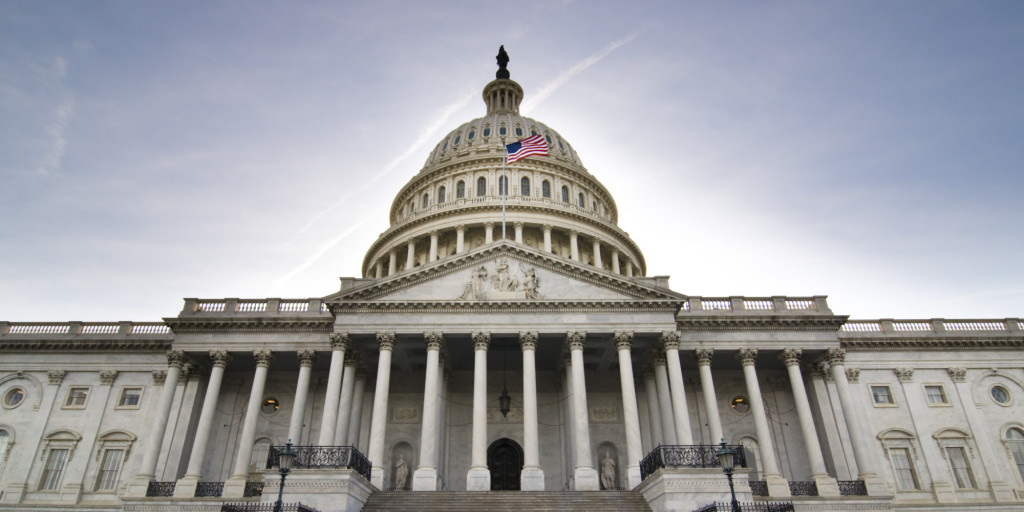
Despite frequent mass shootings, Congress has proved to be unable to pass substantial gun violence legislation, largely because of resistance from Republicans. But a bipartisan proposal by Sens. Lindsey Graham, Republican-South Carolina, and Richard Blumenthal, Democrat-Connecticut, is gaining momentum following weekend mass shootings in Texas and Ohio that left 31 people dead. The emerging plan would create a federal grant program to encourage states to adopt “red flag” laws to take guns away from people believed to be dangers to themselves or others. A similar bill never came up for a vote in the GOP-controlled Senate last year, but both parties express hope that this year will be different. President Donald Trump has signaled support for the plan. “We must make sure that those judged to pose a grave risk to public safety do not have access to firearms and that if they do those firearms can be taken through rapid due process,” Trump said in a White House speech on Monday. Many mass shootings “involved individuals who showed signs of violent behavior that are either ignored or not followed up on,” said Graham, chairman of the powerful Senate Judiciary Committee. “State red flag laws will provide the tools for law enforcement to do something about many of these situations before it’s too late.” In an interview Tuesday, Blumenthal said there’s “a growing wave of support on both sides of the aisle” for the red-flag plan — more momentum in fact “than any other gun violence plan” being debated in Congress, including a proposal Blumenthal supports to require universal background checks for gun purchases. A closer look at red flag laws, which have been adopted by at least 17 states and the District of Columbia, including a law set to take effect Aug. 24 in New York. Most of the laws have been approved since the February 2018 mass shooting at Marjory Stoneman Douglas High School in Parkland, Florida. HOW DOES A RED FLAG LAW WORK? In general, red flag or “extreme risk protection order” laws allow courts to issue temporary orders barring someone from possessing guns based on some showing of imminent danger or a risk of misuse. State laws vary, but most stipulate that only specific people — usually family or household members — may petition a court for an extreme risk protection order. In some cases, a preliminary order may be granted without prior notice to the person who is the subject of the order. Such an order typically is brief, ranging from a few days to about three weeks. Once the person who is alleged to pose a risk of gun violence has been given an opportunity to respond, a more permanent order may be granted, typically for up to a year. Importantly to Graham and other supporters, before an order can be entered, some factual showing must be made that the subject of the order poses a risk of using a firearm to harm themselves or others. WHAT IS THE FEDERAL PROPOSAL? Graham and Blumenthal are still developing the plan, but a similar bill proposed last year by Florida Sens. Marco Rubio and Bill Nelson essentially would pay states to implement red flag law programs. A bid last year by Graham and Blumenthal to let federal courts keep guns away from people who show warning signs of violence failed to generate political support. Blumenthal called the failed effort to create a federal program a learning experience and said the new proposal would set a national standard that states must meet in order to be eligible for federal grants. He compared it to federal highway laws where grants are dependent on states setting speed limits or drunk-driving standards. “If you have speed limits, you get the money,” he said, adding that the red flag law would operate on the same principle. HOW MUCH WOULD IT COST? Costs are still being worked out, but whatever the amount, “it’s a small fraction of the losses — both monetary and in the loss of life — as a result of gun violence,” Blumenthal said. WHO SUPPORTS THE PLAN? Nearly all Senate Democrats support red flag laws, along with a growing number of Republicans, including Pennsylvania’s Pat Toomey, Indiana’s Mike Braun and Iowa’s Chuck Grassley, a former Judiciary chairman. South Dakota Sen. John Thune, the second-ranking Senate Republican, told the Argus Leader in Sioux Falls that he’s “confident Congress will be able to find common ground on the so-called ‘red flag’ issue.” Sen. Rob Portman, Republican-Ohio, told reporters Tuesday he is open to the proposal, noting that the alleged shooter in Dayton, Ohio, had so-called kill lists of intended targets. “Clearly people knew something was wrong with this guy, and yet nobody went to the proper authorities or the proper authorities didn’t respond,” Portman said. A red flag law may “bridge this issue of the guns and the mental health issue, where you identify somebody who has a mental health history that might not be formally diagnosed, but that people know about,” he said. WHERE IS SENATE MAJORITY LEADER MITCH MCCONNELL? The Kentucky Republican, who has adopted the nickname the “Grim Reaper” to celebrate his success at blocking Democratic bills, is widely considered the single biggest roadblock to changes in gun laws or any significant legislation in Congress. McConnell has not publicly indicated a position on red flag laws but said in a statement Monday that “Senate Republicans are prepared to do our part” to address gun violence. He said he has spoken with Graham and other committee chairs and asked them to consider “potential solutions to help protect our communities without infringing on Americans’ constitutional rights.” Congress passed a modest measure last year to shore up the federal background checks system and approved a grant program to prevent school violence — signs that action on gun violence is possible, McConnell said. WHAT ABOUT THE NRA? A National Rifle Association spokeswoman declined to comment. In a statement, the group said it welcomes Trump’s call “to address the root causes
Congress’ fight over election security bills explained by AP
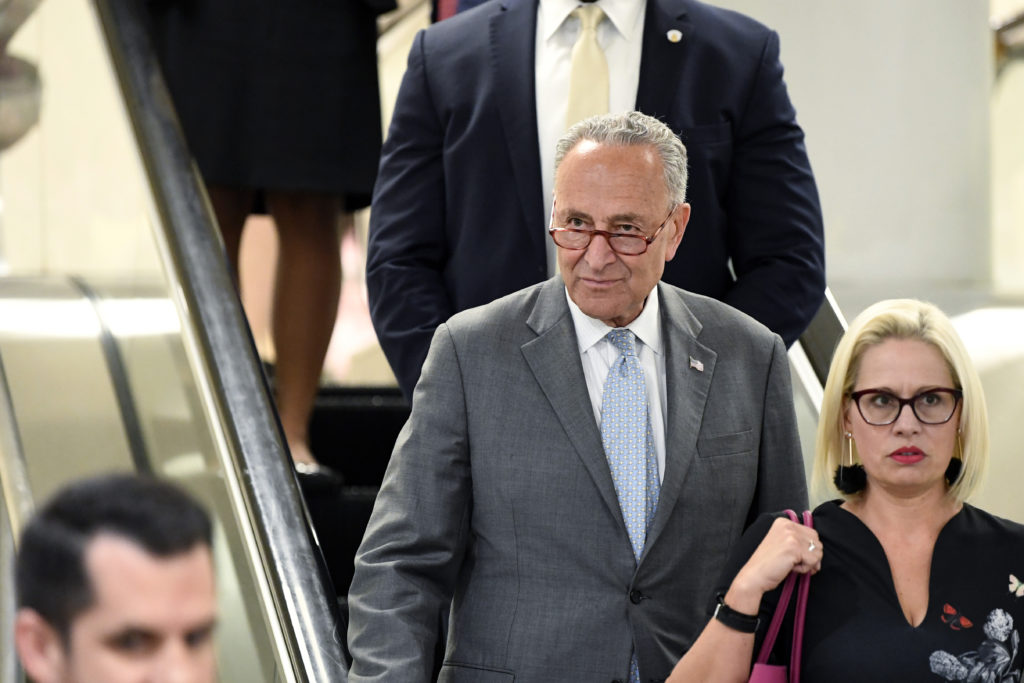
While House Democrats are haggling over whether to consider impeachment of President Donald Trump, Senate Democrats are focusing on a different angle in former special counsel Robert Mueller’s report — securing future elections from foreign interference. Democrats have tried to pass several election security bills in recent weeks only to have them blocked by Republicans, who say they are partisan or unnecessary. The federal government has stepped up its efforts to secure elections since Russians intervened in the 2016 presidential election, but Democrats say much more is needed, given ongoing threats from Russia and other countries. Senate Majority Leader Mitch McConnell has seethed in response to criticism over the issue, including some Democrats’ new moniker for him: “Moscow Mitch.” In an angry floor speech on Monday, he noted that Congress has already passed some bills on the subject, including ones that give money to the states to try to fix security problems. McConnell also left the door open to additional action, saying “I’m sure all of us will be open to discussing further steps.” Senate Minority Leader Chuck Schumer predicted that Democrats’ “relentless pushing” will work. “We’re forcing his hand,” Schumer said. The top Democrat on the Senate intelligence committee, Virginia Sen. Mark Warner, said Thursday that he’s “much more optimistic than even 10 days ago” that the Senate will ultimately pass something on election security. Warner said he believes that in his home state, at least, the issue “has broken through” with voters more than other aspects of Mueller’s probe. But action will have to wait until at least September, with senators having scattered from Washington for the summer recess. A look at various election security bills in the Senate: REPORT FOREIGN INTERFERENCE Legislation introduced by Warner would require campaigns to report to federal authorities if they have any contacts with foreign officials who are attempting to interfere in a presidential election. Mueller’s report, issued in April, details a meeting between a Russian lawyer and members of the Trump campaign before which dirt on Democrat Hillary Clinton had been promised. There’s no evidence that such material was provided at the meeting, and Mueller concluded that he wasn’t able to establish a conspiracy between Trump’s campaign and Russia. But Democrats say more safeguards are needed to ensure future campaigns don’t receive foreign help. Republicans blocked Warner’s bill on the floor last month, but at least one in their ranks has signed on — Maine Sen. Susan Collins, a key swing vote on the intelligence panel.“Russia’s efforts to interfere in our elections remain relentless,” Collins tweeted July 30. “I’m proud to join Sen. @MarkWarner in cosponsoring the bipartisan FIRE Act to require presidential candidates to immediately call the FBI if they are contacted by a foreign power attempting to target our elections.” Democratic Sen. Richard Blumenthal of Connecticut has a similar bill that has also been blocked by Republicans. SECURE STATE ELECTION SYSTEMS Minnesota Sen. Amy Klobuchar, a Democratic candidate for president, has introduced legislation to require states to use paper ballots, which would make election systems less vulnerable to hacking. It would also provide additional grants for states to make improvements, among other measures. Homeland Security officials notified election officials in 21 states in 2017 that their systems had been targeted by Russia. Authorities have since said they believe all states were targeted to varying degrees. The federal government has ramped up its efforts to help states prevent such intrusions, and both sides say the relationship has greatly improved.Republicans blocked passage of Klobuchar’s bill on the Senate floor in June. GOP critics of the bill say they fear creating too many new federal rules for states when they are already working with the government to make improvements. Some Republicans supported similar legislation in the last Congress, including Oklahoma Sen. James Lankford and Missouri Sen. Roy Blunt. Lankford has said he’s still working with Klobuchar’s office on details of the legislation, but Blunt says he doesn’t think it’s needed, for now. The House passed similar legislation to help states, but Republicans blocked that on the Senate floor as well. SENATE CYBERSECURITY Democratic Sen. Ron Wyden of Oregon and Republican Sen. Tom Cotton of Arkansas have sponsored a bill to protect personal electronic devices and accounts of senators and Senate staff from cyber threats. It would allow Senate officials to provide voluntary assistance to the senators. That bipartisan legislation, which was also blocked on the Senate floor last month, came after former Sen. Claire McCaskill, Democrat-Missouri, said last year that Russian hackers had tried unsuccessfully to infiltrate her Senate computer network in 2017. The senators said they proposed the legislation after Senate officials said they couldn’t use public funds to protect non-government devices and accounts. RUSSIAN SANCTIONS Another bipartisan election security measure from Sens. Marco Rubio, Republican-Florida, and Chris Van Hollen, Democrat-Maryland, would slap new sanctions on Russia if it tries to interfere in U.S. elections. Rubio and Van Hollen pushed the legislation last session and reintroduced it this year, but it hasn’t yet moved. McConnell hasn’t signaled opposition to the bill, but some lawmakers in the House and Senate have raised concerns it casts too wide a net and could cause problems for allied nations that do business with Russia. MORE REGULATION OF ONLINE CAMPAIGN ADS Legislation first introduced in 2017 by Warner and Klobuchar would extend some political ad rules that now apply to TV, radio and print to the internet. That bill has bipartisan support as well, with Senate Judiciary Committee Chairman Lindsey Graham as a cosponsor. The senators wrote the legislation in response to Russia’s broad social media disinformation campaign on Facebook and other sites. It would require social media companies to keep public files on election ads and meet some of the same disclaimer requirements as political broadcast and print advertising. The social media companies say they have started to take those steps voluntarily, but the bill’s supporters say they should be required by law. MAKING IT A CRIME FOR FOREIGN NATIONS TO INTERFERE In arguing
Martha Roby: How my offices can help you

As your representative in Congress, I have the privilege of offering numerous services and resources to the people who live and work in the Second District. My offices provide quite a few constituent services, and it is important that you’re aware of them so that you can take full advantage of the many ways my offices can help you. My district offices in Montgomery, Dothan, and Andalusia assist constituents with casework, meaning if you’ve placed an inquiry with a federal agency, like the VA or Social Security Administration, and haven’t received a timely response, or if you feel you have been treated unfairly, my district offices might be able to help resolve the problem. At the very least, they can provide the information you need. If you are currently experiencing issues with one of the federal agencies, I encourage you to contact one of my offices as soon as possible so we can do our best to help you resolve the issue. If you are planning a trip to our nation’s capital, my staff in Washington is available to help you obtain tickets for tours of the U.S. Capitol building and other attractions, including the White House, the Supreme Court, the Library of Congress, and more. Please be advised that advanced notice is usually necessary, so if you are planning a visit to D.C., I encourage you to contact my office as soon as possible. Our goal is to help you have a wonderful experience. Did you also know that you can purchase an American flag through my office? You can even request that your flag be flown over the Capitol building before it is sent to you. This is a really special way to commemorate important occasions for yourself or a loved one. If you are interested in taking advantage of this service, contact my office in Washington, and we will make it happen. There are many, many other services available to you through my offices, including service academy nominations, congressional internships for college students, presidential greetings, assistance with federal grant applications, and more. I hope you will pass this information along to your friends and family, so they are aware of what is available, too. Below you will find the contact information for all of my offices, and this information can also be found on my website: www.roby.house.gov/constituent-services. Always remember that my staff and I work for you, and we are eager to assist you. Washington, D.C., office:504 Cannon House Office BuildingWashington, D.C., 20515(202) 225-2901 Montgomery office:401 Adams Avenue, Suite 160Montgomery, AL 36104(334) 262-7718 Dothan office: 217 Graceland Drive, Suite 5Dothan, AL 36305(334) 794-9680 Andalusia office:City Hall505 E. Three Notch Street, Suite 322Andalusia, AL 36420(334) 428-1129 Martha Roby represents Alabama’s Second Congressional District. She lives in Montgomery, Alabama, with her husband Riley and their two children.
Freshmen house democrats raise more money than gop opponents

The Republican pathway for recapturing House control in next year’s election charges straight through the districts of the most vulnerable Democratic incumbents, especially freshmen. Judging from early but formidable cash advantages those lawmakers have amassed, ousting them won’t be easy. Each of the 62 freshmen House Democrats has raised more money than their top opponent. The same is true for all 31 Democrats from districts President Donald Trump had won in 2016 and for all 39 Democrats who snatched Republican-held seats last November. In nearly all cases it’s not even close. While there’s overlap among the categories, most of these Democrats’ war chests are multiples of what their leading challengers have garnered. That’s testament to the historic ability of both parties’ incumbents to attract contributions and Democrats’ strategy of aggressively collecting money quickly to seize on the anti-Trump enthusiasm that fueled their House takeover last year . “The more you can raise early on, the more you’re going to be able to solidify your seat and show that it’s not worth investments on behalf of Republicans” by GOP donors, said freshman Rep. Katie Hill, Democrat-California. Hill has raised $1.3 million so far this year, more than triple the combined contributions reported by her four would-be Republican challengers. She was elected last year in a Southern California district Republicans had held since 1993. Democrats control the House 235-197, with one independent and two vacancies. Republicans will need 218 seats for a majority. Democrats’ money advantages reflect reports filed with the Federal Election Commission covering the first half of 2019, so plenty can change by Election Day. Many serious challengers haven’t commenced their campaigns yet or have only recently started raising money, and many Republicans will eventually overtake their Democratic rivals. In addition, by November 2020 many GOP candidates will be bolstered by the Republican Party’s allied super PACs, political action committees that can spend unlimited funds. The Congressional Leadership Fund, the GOP super PAC that helps House candidates, unleashed $159 million in 2018 races, well above the $96 million by Democrats’ House Majority Fund. “We haven’t seen anything yet. Wait till the super PACs start dropping their bombs later in the cycle,” warned former New York Rep. Steve Israel, who once led the Democratic Congressional Campaign Committee, or DCCC, House Democrats’ election organization. Republicans downplay the early money discrepancies but concede the numbers merit attention. “It’s a wake-up call to every Republican that you’ve got to be out there doing the work, making sure we beat the trend of money coming in” to Democrats, said Rep. Rodney Davis, Republican-Illonios. Davis is a top Democratic target who was re-elected by less than 1 percentage point last November and faces a 2020 rematch against the well-financed Betsy Londrigan. Even so, warning signs for the GOP are scattered around the country. Democratic freshman Rep. Joe Cunningham, who squeaked into office in South Carolina’s Trump-leaning Lowcountry coastal district, has raised nearly $1.3 million. That’s more than quadruple his best-funded GOP opponent and double the top three Republicans’ contributions combined. Also outstripping their top money-raising GOP challengers are five freshmen from districts Trump carried by a comfortable 10 percentage points or more: Reps. Jared Golden of Maine, Kendra Horn of Oklahoma, Xochitl Torres Small of New Mexico and Anthony Brindisi and Max Rose of New York. Freshman Rep. Tom Malinowski, Democrat-New Jersey, who defeated a GOP incumbent in November, has doubled the fundraising of Tom Kean Jr., a prized GOP recruit and son of a popular former governor by the same name. Sixteen freshmen Democrats ousted Republicans last year by a narrow 4 percentage points or less, and all but two of them have raised at least twice as much as their nearest GOP rival: Reps. Gil Cisneros of Southern California and Oklahoma’s Horn. Underscoring Democrats’ efforts to shore up vulnerable incumbents, 26 of the 62 Democratic freshmen have already raised $1 million or more. They’re led by the nearly $2 million accumulated by the party’s highest-profile newcomer, progressive Rep. Alexandria Ocasio-Cortez , who has a safe New York City seat but seems likely to use some money to help others. Also exceeding $1 million in receipts are 13 of the 31 Democrats who captured Trump-won districts, and 23 of the 39 Democrats who grabbed GOP seats. One of those flush Democrats is freshman Rep. Josh Harder of California’s Central Valley. He’s raised more than $1.6 million, tripling his best-financed GOP challenger, Ted Howze, a large-animal veterinarian who ran unsuccessfully last year. “We don’t have to raise as much as him, but just enough to get our message out,” said Howze. He said he could need up to $6 million for his campaign. Harder spent more than $8 million to win in 2018. The DCCC should further shore up Democrats. It disbursed $297 million helping candidates for 2018, exceeding the $201 million spent by its counterpart, the National Republican Congressional Committee. It’s ahead in this year’s money race as well. In some areas, Republicans are already exhibiting fundraising chops. Don Sedgwick, mayor of Laguna Hills, California, has raised an impressive $621,000, but that’s a fraction of the $1.4 million collected by his intended target, freshman Democratic Rep. Katie Porter. Republican Young Kim, whom Cisneros narrowly defeated in 2018, is not far behind the $579,000 Cisneros has raised. And while freshman Rep. Lucy McBath, Democrat-Georgia, has raised nearly $1.2 million, the top four GOP contenders have raised $1.5 million combined. That suggests plenty of money may be available for the eventual Republican nominee. By Alan Fram Associated Press. Republished with permission of the Associated Press.
House oks $15 minimum wage, setting marker for 2020 campaign

House Democrats approved legislation Thursday to raise the federal minimum wage for the first time in a decade, to $15 an hour, transforming an issue that once splintered the party into a benchmark for the 2020 election. Even though the bill has little chance of passing the Republican-led Senate, or being signed into law by President Donald Trump, the outcome pushes the phased-in rate to the forefront as the new standard, one already in place at some leading U.S. corporations. While the increase would boost pay for some 30 million low-wage workers, intended as one answer to income inequality, passage was assured only after centrist Democrats won adjustments to the bill. Reluctant to embrace the party’s left flank, they pushed for changes, including a slower six-year phase-in of the wage. It’s a reminder of moderates’ influence on policy, but also the limits. “We’re testing candidates from the presidential all the way down to the school board,” said Mary Kay Henry, the president of the Service Employees International Union whose members cheered passage from the House gallery. To address stark income inequality, she said, “they have to raise wages.” A hike in the $7.25 hourly wage has been a top Democratic campaign promise, and what Majority Leader Steny Hoyer of Maryland called Thursday the “right thing to do.” “America’s workers deserve a raise,” said Speaker Nancy Pelosi at a press conference with labor leaders and employees ahead of voting. Lifting a young girl into her arms, Pelosi said, “This is what it’s all about… It’s about family.” The last increase in the federal minimum occurred 10 years ago, the longest stretch without an adjustment since the wage floor was first enacted during the 1930s. The wage protection covers millions of low-wage workers in all types of jobs. Under the House bill, for the first time, tipped workers would be required to be paid the same as others earning the minimum, boosting their pay to $15 an hour, too. It’s now $2.13, in what labor scholars call a jarring remnant from the legacy of slavery, when newly freed workers received only tips. Republicans in the House balked at the wage hike, which would be the first since Democrats last controlled the majority. Just three Republicans joined most Democrats in passage, on a 231-199 vote. During the floor debate, Rep. Ronald Wright, Republican-Texas, called it a “disastrous bill.” Republicans have long maintained that states and municipalities are already able to raise the wage beyond the federal minimum, and many have done so. They warn higher wages will cost jobs, especially among smaller business owners. Wright said the bill should be renamed the “Raising Unemployment for American Workers Act.” While opponents have long said higher minimum wages lead to job losses, economists say new studies are casting doubt on those long-held theories. A report from the nonpartisan Congressional Budget Office sent mixed messages. It said more than 30 million workers would see bigger paychecks with a higher wage, lifting more than 1 million workers from poverty. It also said between 1 million and 3 million jobs could be lost. At time of wage stagnation and grave income inequality that’s playing out on the campaign trail, Democrats led by Rep. Bobby Scott, Democrat-Virginia, the chairman of the House Education and Labor Committee, are willing to accept that tradeoff. But swift passage earlier this year ran into trouble when centrists and those Democrats from rural regions and Southern states raised concerns. While the new Democratic majority is often seen as pushing the House leftward, many of the freshmen are actually moderates from districts won by Trump in 2016. Those same freshmen will face some of the toughest reelection races in 2020. The moderate Blue Dog Coalition, led by Rep. Stephanie Murphy, Democrat-Florida, advocated for changes to the wage bill. With some two dozen members, the caucus has enough votes to deny Pelosi a majority and sink the legislation. They wanted the longer phase of six years instead of five. And they included an amendment requiring a report from the General Accountability Office, after the first phases of the wage hike, to assess the economic impact on jobs and whether wages should be fully raised to $15. “I’ve always been one to believe compromise is not a dirty word,” Murphy said in an interview. “It has helped us get things done.” Most members of the Blue Dogs and another centrist caucus, the New Democratic Coalition, ended up voting for the bill. They also held the line against a Republican alternative. Progressives and labor leaders said they could live with the changes. Rep. Mark Pocan, Democratic-Wisconsin, co-chairman of the Congressional Progressive Caucus, said the bill is popular back home and far from Trump’s characterization of Democrats as “socialists.” The idea of a $15 hourly wage, “somehow that’s an out-of-the-mainstream thought?” he said. “Of course not.” Advocates who have been trying to boost wages for workers for years said they were stunned at how quickly the debate shifted. Sara Jayaraman, president of the Restaurant Opportunities Center United, group founded with displaced workers from the World Trade Center after the Sept. 11, 2001 terror attacks, said boosting the tipped wages in particular, for waiters and other tipped workers, was a milestone. It’s “historic moment and a historic bill,” she said. “Once you start raising workers’ wages it’s hard to go back.” By Lisa Mascaro AP Congressional Correspondent. Follow Mascaro at https://twitter.com/@lisamascaro. Republished with permission of the Associated Press.
Facebook’s currency plan gets hostile reception in Congress
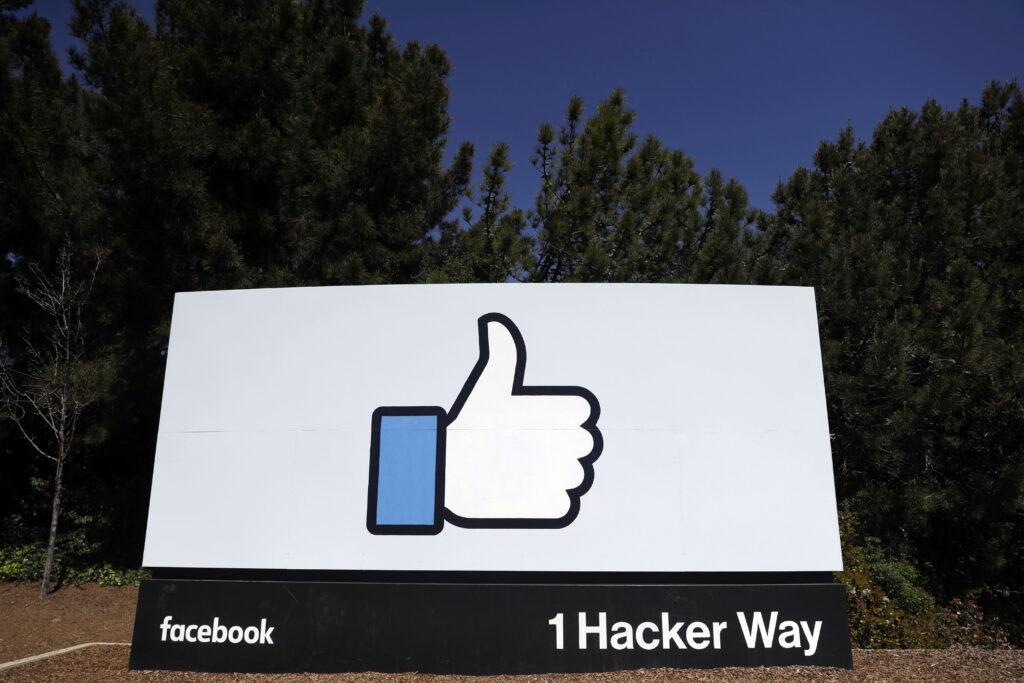
Under sharp criticism from senators, a Facebook executive on Tuesday defended the social network’s ambitious plan to create a digital currency and pledged to work with regulators to achieve a system that protects the privacy of users’ data. “We know we need to take the time to get this right,” David Marcus, the Facebook executive leading the project, told the Senate Banking Committee at a hearing. But that message did little to assure senators. Members of both parties demanded to know why a company with massive market power and a track record of scandals should be trusted with such a far-reaching project, given the potential for fraud, abuse and criminal activity. “Facebook is dangerous,” asserted Sen. Sherrod Brown of Ohio, the committee’s senior Democrat. Like a toddler playing with matches, “Facebook has burned down the house over and over,” he told Marcus. “Do you really think people should trust you with their bank accounts and their money?” Republican Sen. Martha McSally of Arizona said “the core issue here is trust.” Users won’t be able to opt out of providing their personal data when joining the new digital wallet for Libra, McSally said. “Arizonans will be more likely to be scammed” using the currency, she said. The litany of criticism came as Congress began two days of hearings on the currency planned by Facebook, to be called Libra. Meanwhile, a House Judiciary subcommittee extended its bipartisan investigation of the market power of Facebook, Google, Amazon and Apple. On the defensive from bursts of aggressive questioning, Facebook’s Marcus indicated the currency plan is a work in progress. “We will take the time” to ensure the network won’t be open to use by criminals and illicit activity like money laundering and financial fraud. “We hope that we’ll avoid conflicts of interest. We have a lot of work to do,” Marcus said. He said the new venture would be headquartered in Switzerland, not to avoid oversight but because the country is a recognized international financial center. The grilling followed a series of negative comments and warnings about the Libra plan in recent days from President Donald Trump, his treasury secretary and the head of the Federal Reserve. But some senators emphasized the potential positive benefits of Facebook’s plan, meant to bring money transacting at low cost to millions around the globe who don’t have bank accounts. Facebook had its strong defenders of the project, too, on the panel. “To strangle this baby in the crib is wildly premature,” said Sen. Pat Toomey, Republican-Pennsylvania. In that vein, Marcus said Libra “is about developing a safe, secure and low-cost way for people to move money efficiently around the world. We believe that Libra can make real progress toward building a more inclusive financial infrastructure.” The planned digital currency is to be a blend of multiple currencies, so that its value will fluctuate in any given local currency. Because Libra will be backed by a reserve, and because the group of companies managing it will encourage a competitive system of exchanges, the project leaders say, “anyone with Libra has a high degree of assurance they can sell it for local (sovereign) currency based on an exchange rate.” Promising low fees, the new currency system could open online commerce to millions of people around the world who lack access to bank accounts and make it cheaper to send money across borders. But it also raises concerns over the privacy of users’ data and the potential for criminals to use it for money laundering and fraud. To address privacy concerns, Facebook created a nonprofit oversight association, with dozens of partners including PayPal, Uber, Spotify, Visa and MasterCard, to govern Libra. As one among many in the association, Facebook says it won’t have any special rights or privileges. It also created a “digital wallet” subsidiary, Calibra, to work on the technology, separately from its main social media business. While Facebook owns and controls Calibra, it won’t see financial data from it, the company says. Senators demanded to know exactly what that separation will entail. “Facebook isn’t a company; it’s a country,” said Sen. John Kennedy, Republican-Louisiana. Kennedy and other conservative senators took the occasion to air long-standing grievances against Facebook, Twitter and Google for a perceived bias against conservative views. Facebook’s currency proposal has also faced heavy skepticism from the Trump administration. Trump tweeted last week that the new currency, Libra, “will have little standing or dependability.” Both Treasury Secretary Steven Mnuchin and Fed Chair Jerome Powell have expressed serious concerns recently that Libra could be used for illicit activity. The Treasury Department has “very serious concerns that Libra could be misused by money launderers and terrorist financers,” Mnuchin told reporters at the White House on Monday. “This is indeed a national security issue.” Also Tuesday, across the Capitol in the House, the chairman of a Judiciary Committee panel investigating the market power of big tech companies said Congress and antitrust regulators wrongly allowed them to regulate themselves. That enabled companies like Facebook, Google, Amazon and Apple to operate out of control, dominating the internet and choking off online innovation, Rep. David Cicilline, Democrat-Rhode Island, said at the start of a hearing. “The internet has become increasingly concentrated, less open, and growingly hostile to innovation and entrepreneurship,” he said. As concerns have mounted over data privacy and market dominance of Big Tech, an increasing number of lawmakers from both parties are calling for tighter regulation of customarily free-wheeling companies or even breaking them up. The Justice Department and the Federal Trade Commission are pursuing antitrust investigations of the four major companies. Executives of the companies, testifying at the Judiciary hearing, pushed back against lawmakers’ accusations that they operate as monopolies, laying out ways in which they say they compete fairly yet vigorously against rivals in the marketplace. And Google executive Karan Bhatia, at a Senate Judiciary subcommittee hearing on online bias, insisted that the company’s search engine does not filter on the basis of political views. “We surface the

